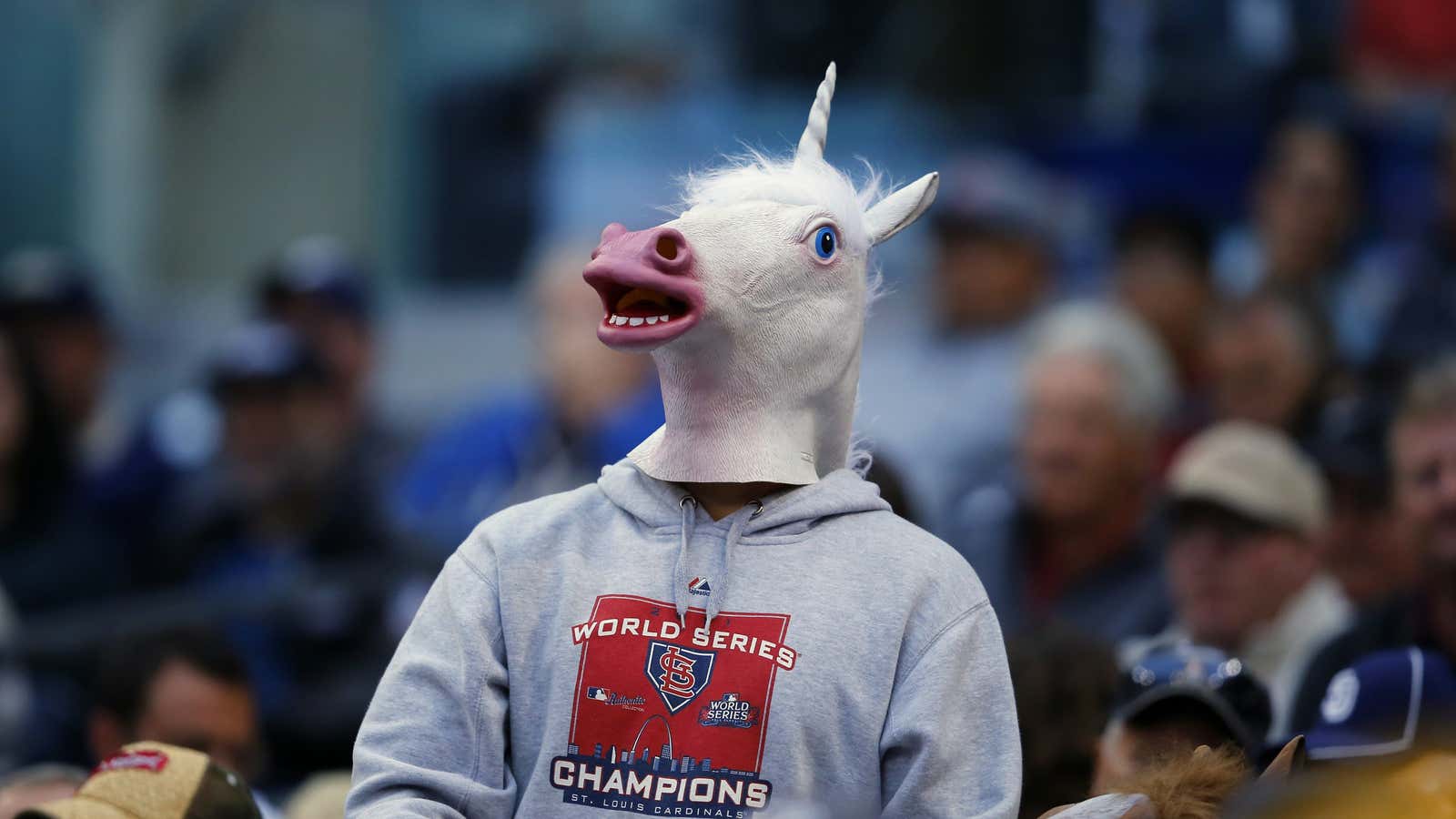2019 is turning out to be great for Indian internet ventures.
It’s not even mid-way into the year, and the country has already seen two internet firms achieve unicorn valuations, and at least one more is close to the milestone.
On May 06, online grocer BigBasket said it has received $150 million (Rs1,040 crore) in funding from South Korea’s Mirae Asset-Naver Asia Growth Fund, UK’s CDC Group, and existing investor Alibaba, at a valuation of over $1 billion.
This comes just a month after Hong Kong-based asset manager Steadview Capital bought an undisclosed stake in fantasy sports gaming platform Dream11, valuing the company at over $1 billion.
And on March 31, online beauty products retailer Nykaa had said it had raised Rs100 crore ($14 million) from private equity firm TPG Growth at a valuation of over $700 million. Experts have said the Mumbai-based venture could touch a billion-dollar valuation soon.
“These developments prove that investment activity and the pace of growth has picked up in the startup space,” said Yugal Joshi, vice-president of consultancy Everest Group.
Beyond the big few
These new unicorns highlight that investors are moving beyond just the handful of large internet firms, such as Ola and Paytm, which have so far devoured the lion’s share of venture capital (VC) funding in India.
In 2017 and 2018, VC funds in India invested more money in India but in far fewer companies, which led to a tapering in the number of such deals.
In addition, the two new unicorns and the one “soonicorn” (a startup that is expected to turn unicorn soon) operate in varied business segments—Nykaa is the poster boy of online cosmetics business, Dream11 is all about gaming and BigBasket represents the other world of grocery—highlighting investors’ appetite for diversity.
“It is also good to know that different types of businesses in the country are attracting investments,” Joshi of Everest said.
Coming of age
The rise of BigBasket and Nykaa is also reflective of evolution in Indian internet businesses, said Sanchit Vir Gogia, founder and CEO of Greyhound Research.
“The companies that we are talking about, be it BigBasket, Nykaa, or Dream 11, are not overnight stars. They have been working their way up quietly for some time,” Gogia said. “BigBasket for one has been investing in the supply chain, logistics and technology for long to reach where it is now.”
BigBasket was founded in 2011 by Hari Menon, a successful entrepreneur who had earlier sold his brick-and-mortar retail chain Fabmall and Trinetra to Aditya Birla Group. Meanwhile, Dream11 was co-founded by University of Pennsylvania alumnus Harsh Jain and his friend Bhavit Sheth in 2008. And Nykaa was founded in 2012 by Falguni Nayar, a former investment banker.
Their success in cracking difficult segments, like delivery of perishables in the case of BigBasket, will go a long way in boosting global investors’ confidence in the India story. “Within the grocery space, we will see an emergence of more hyper-local platforms. It’s a big market, one player cannot serve all the pockets,” said Gogia. “A few years down the line, the industry will head for consolidation as is the case with most of the industries.”
But it’s not going to be a joyride for these ventures, for sure. Unlike companies such as Ola, which have tasted gigantic success in India, a BigBasket may struggle to go beyond what it does currently, experts said. In addition, internet ventures today are pressed for profits more than earlier years.
“After gaining scale in domestic business, Ola quickly launched international operations. However, BigBasket’s model is not like Ola’s. Does it have a market outside India? In all likelihood, the answer is no. So, looking beyond tier 1 and tier 2 markets, BigBasket has to see whether it’s now out there to chase growth or profitability.” Joshi said.
